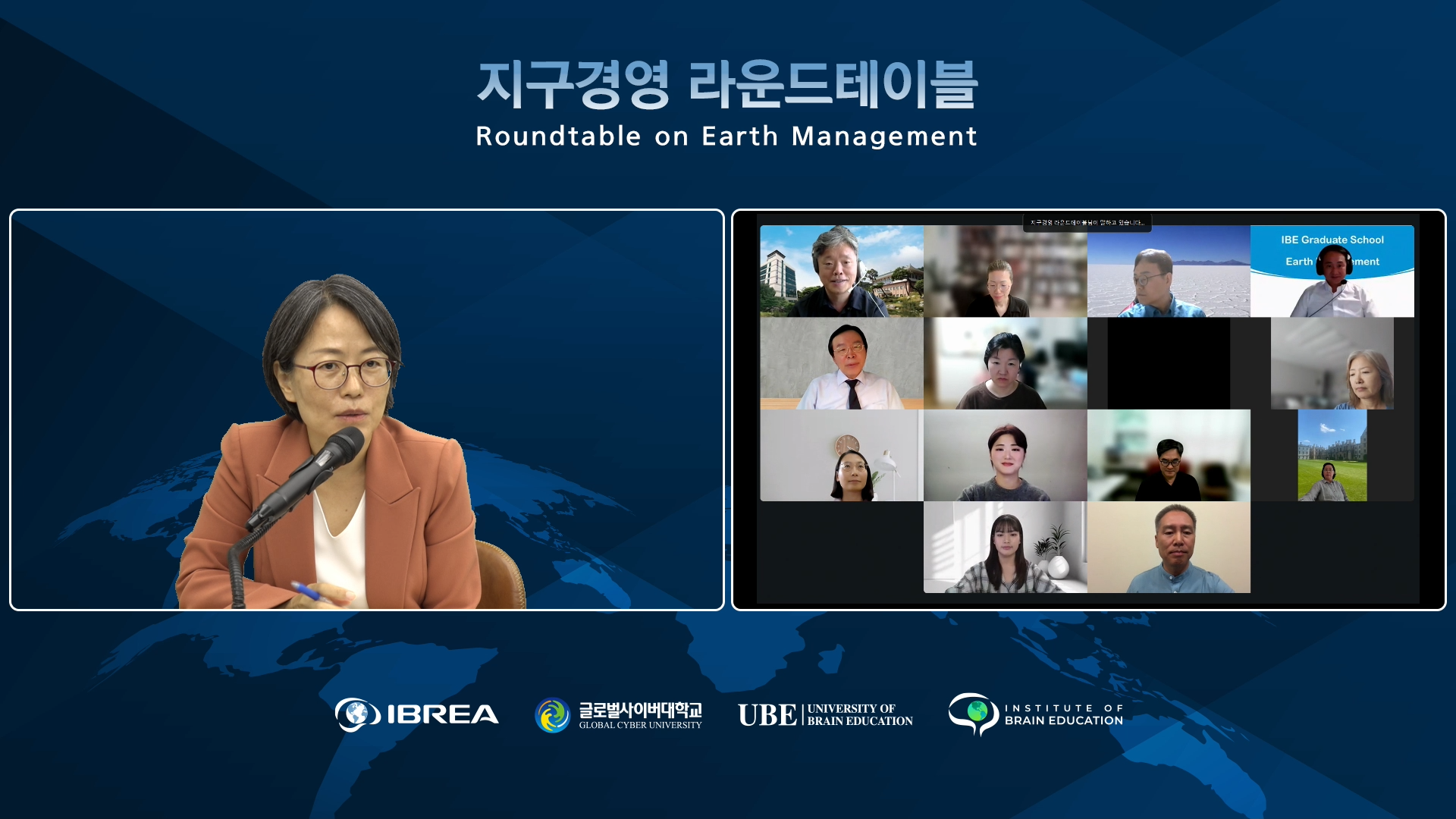
Seoul, September 25 — The International Brain Education Association (IBREA), the University of Brain Education (UBE), Global Cyber University (GCU), and the IBE Graduate School (USA) successfully co-hosted the first public Earth Management Roundtable Korea–U.S. virtual forum.
Launched in the wake of the August establishment of the International Academic Committee on Earth Management, the forum marked the first open gathering dedicated to advancing the scholarship and public understanding of Earth Management.
In welcoming remarks, Byeong Yeong Gong, President of Global Cyber University and the University of Brain Education, said, “Amid wars, ecological crises, and the uncertainties of the AI era, it is profoundly meaningful that Earth Management as an academic discipline has begun in Korea,” adding that “universities must embrace the mission of cultivating responsible Earth citizens.”
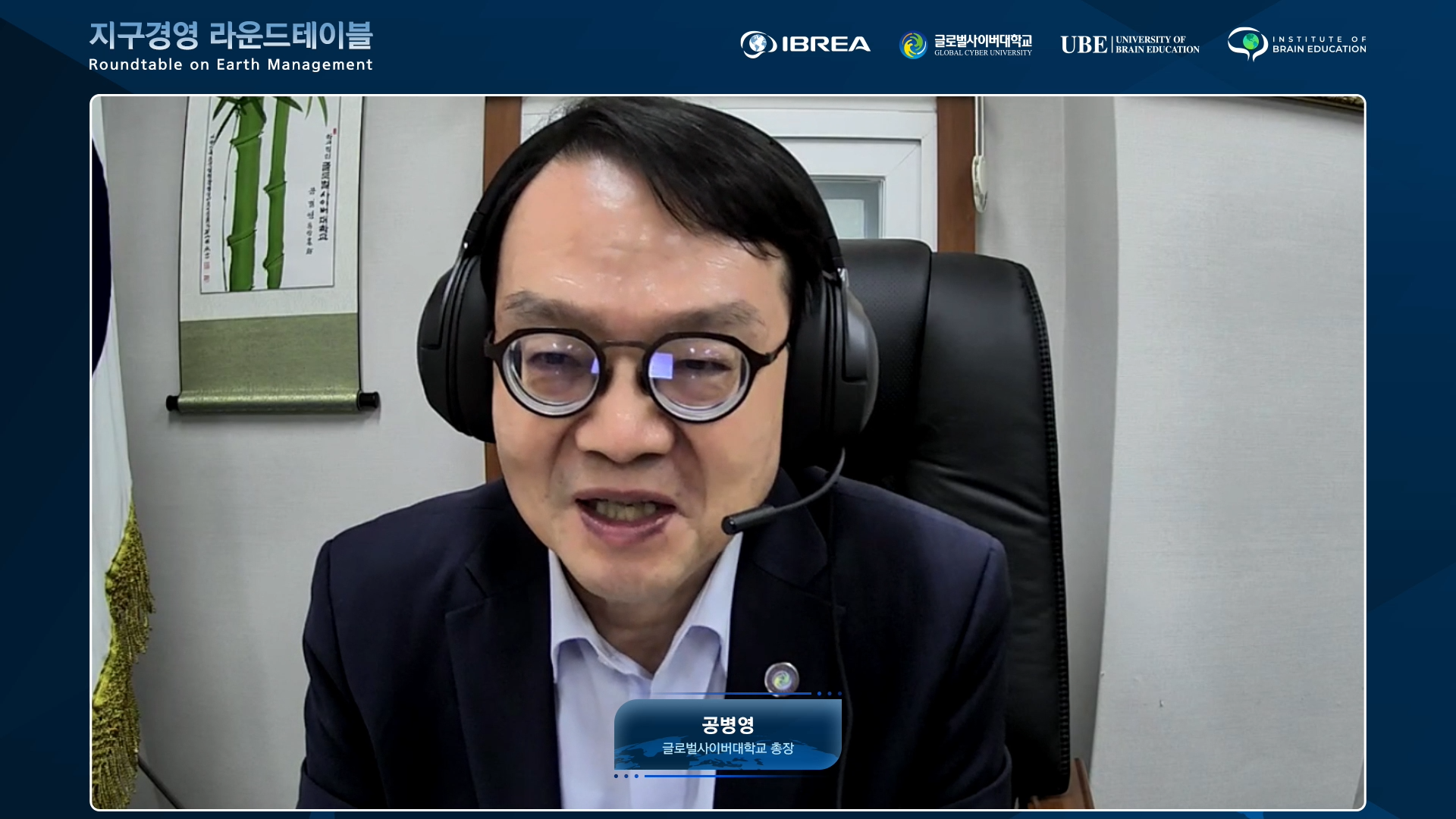
Joung Han Lee, President of the IBE Graduate School, noted, “If Brain Education concerns choices and decisions at the individual level, Earth Management addresses collective choices and decisions at organizational and national levels.” He emphasized that “personal change is change in the brain,” and that “the academic institutionalization of Earth Management can bring significant progress to the international community.”
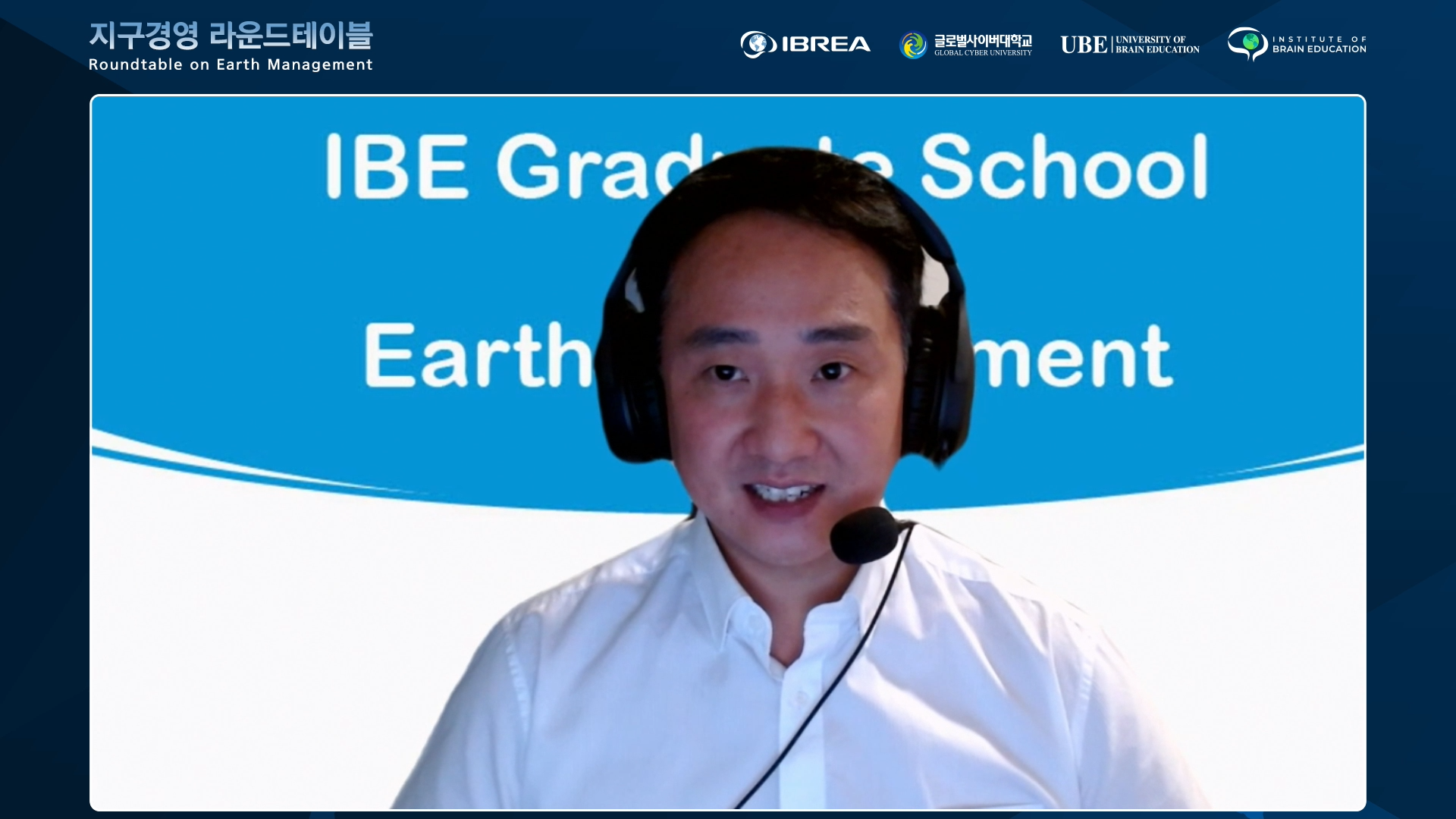
Program Highlights
In the thematic session, Ho Chan Seo, chair of the Department of Earth Management at UBE, presented on “a paradigm shift from personal nutrition to planetary nutrition,” arguing for a transition from conventional nutrition science to an Earth-nutrition (geo-nutrition) paradigm that considers not only individual health but the entire planetary ecosystem.
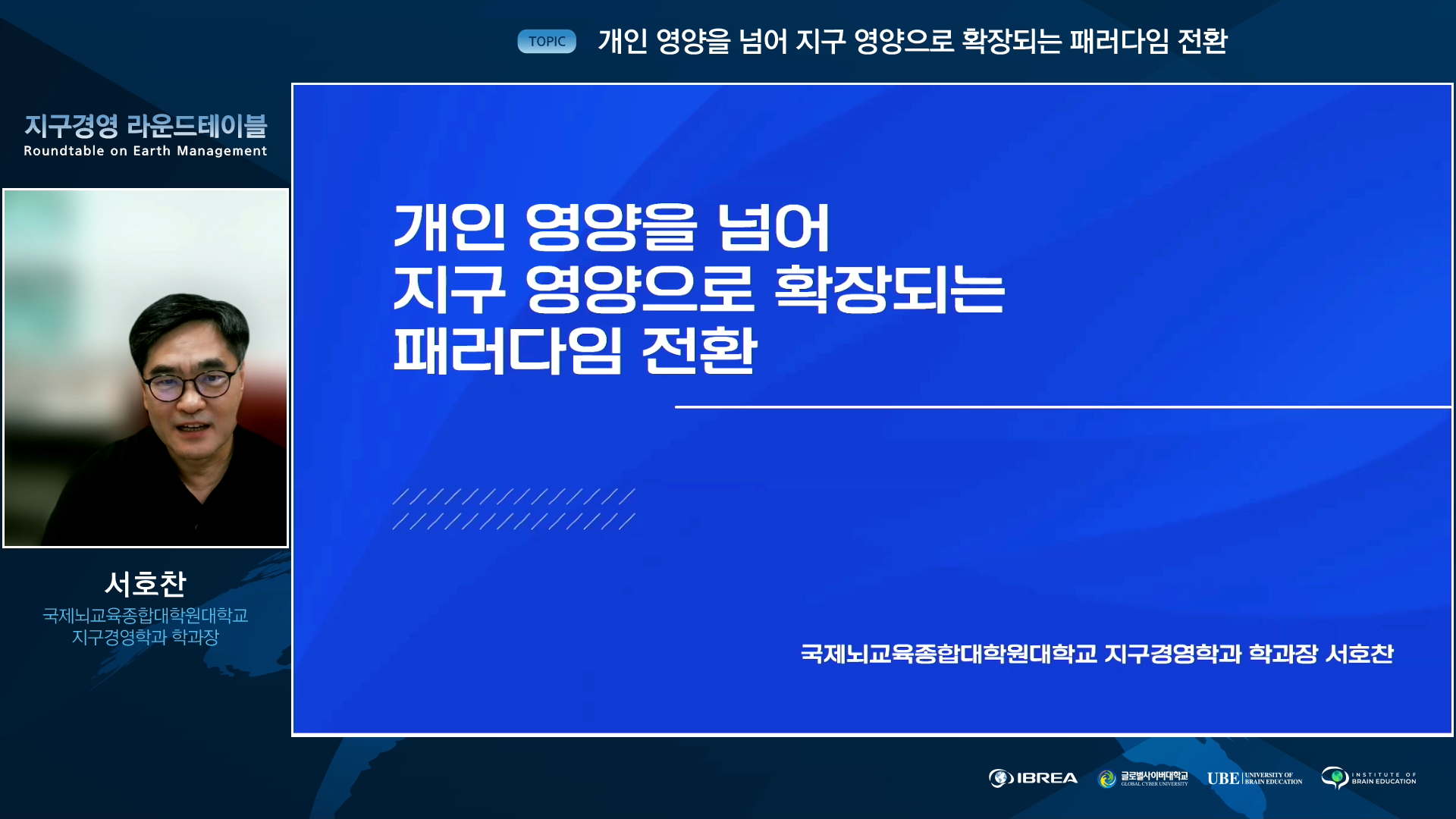
Ji-In Kim, IBREA senior manager for International Collaboration (Ph.D. in Earth Management), spoke on “Socioeconomic Inequality and Hong-Ik Ingan.” Analyzing the inherent limitations of liberal democracy that can intensify inequality, she outlined a new political-philosophical direction for Earth Management grounded in Korea’s Hong Ik Ingan tradition, drawing on Cho So-ang’s Principle of the Three Equalities (Samgyun) and Ahn Jae-hong’s New Democracy.
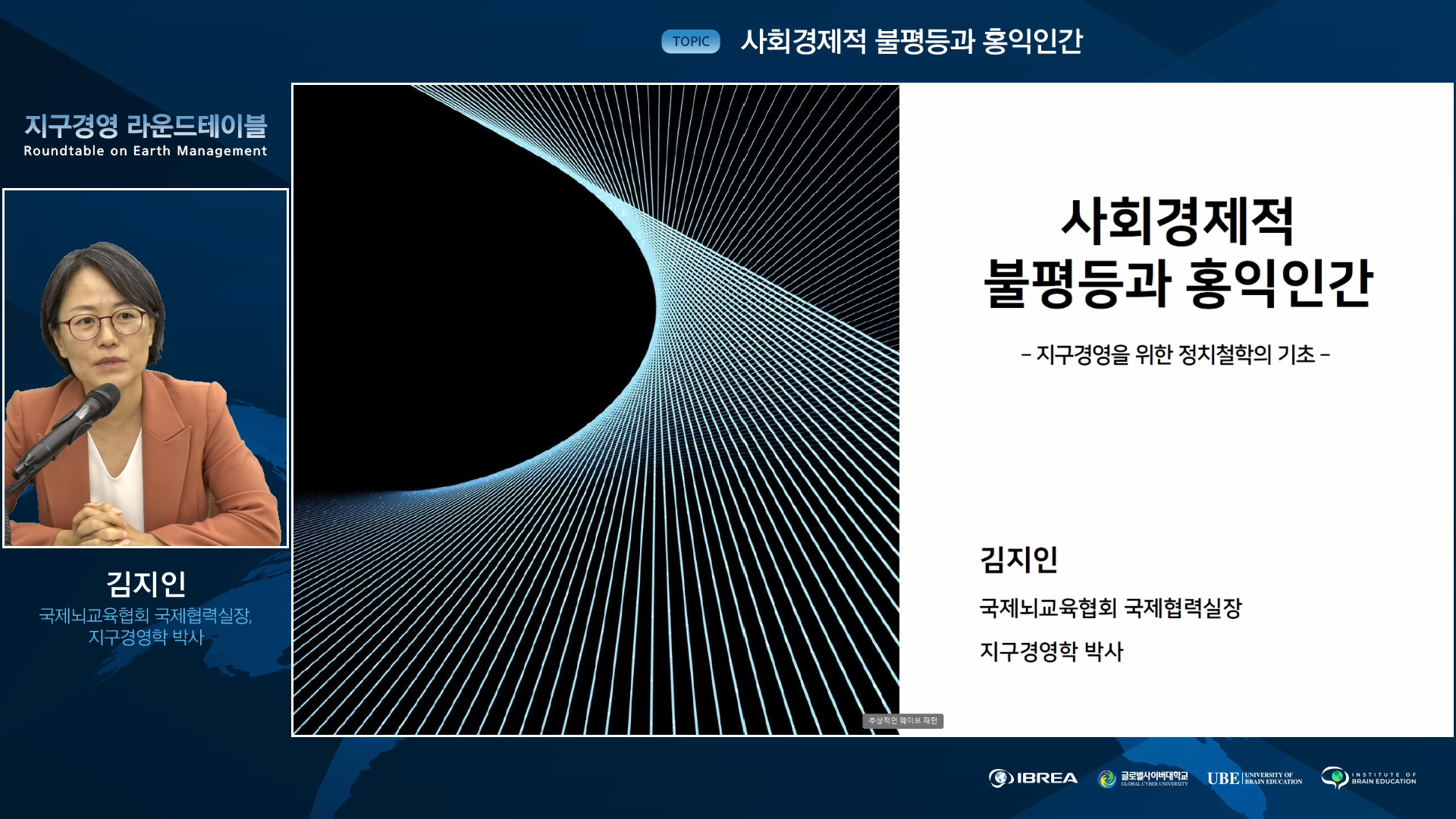
Introducing the fully online Master’s program (launched in 2023), Hyeran Ihm, CAO (Chief Academic Officer) of the IBE Graduate School, explained that the curriculum “aims at transformative development in holistic well-being, leadership, and sustainability through a brain-based approach.” She highlighted a faculty with both professional backgrounds and hands-on Brain Education experience, and a capstone project designed to build practical competencies.
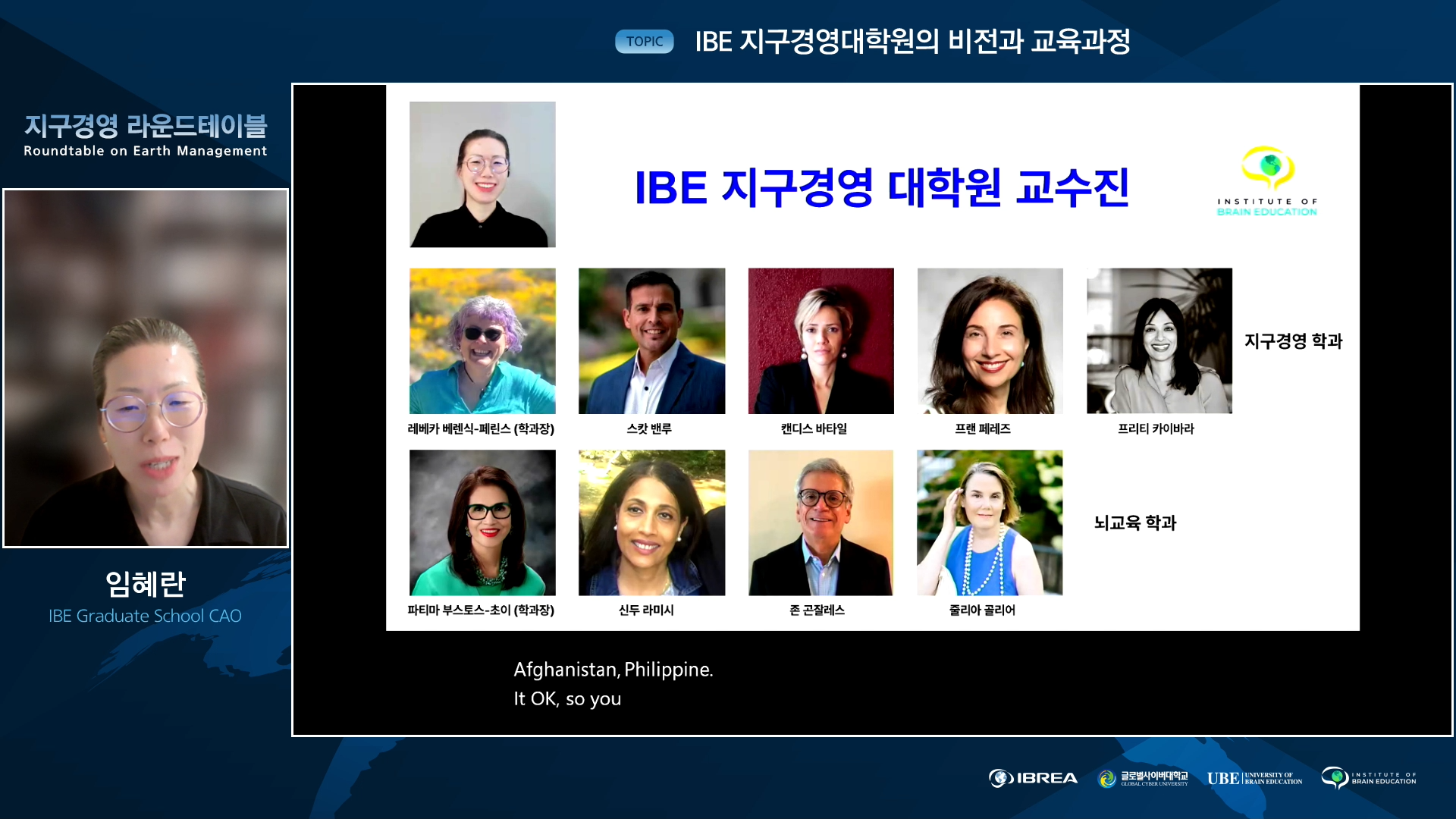
Rae-Hyuk Chang, chair of the Department of Brain Education at Global Cyber University and Lead of the Earth Management Convergence Major, presented GCU’s vision as a “university contributing to the Earth” and introduced the cyber-university’s first-of-its-kind “Youth Earth Management Leadership” study-abroad credit program. The program is built on three pillars: cultivating a global mindset, advancing Korean values that contribute to the Earth and humanity, and developing inner human capacities.
Notably, students Ji-Eun Lee and Chae-Young Kim, currently participating in the one-year New Zealand track, shared first-hand experiences of living in harmony with nature and their comparative policy research on environmental issues. “As I focus on the Earth, I feel my heart’s container growing,” said Kim. “In a year, I hope to be someone who can bring Earth Management to the world.”
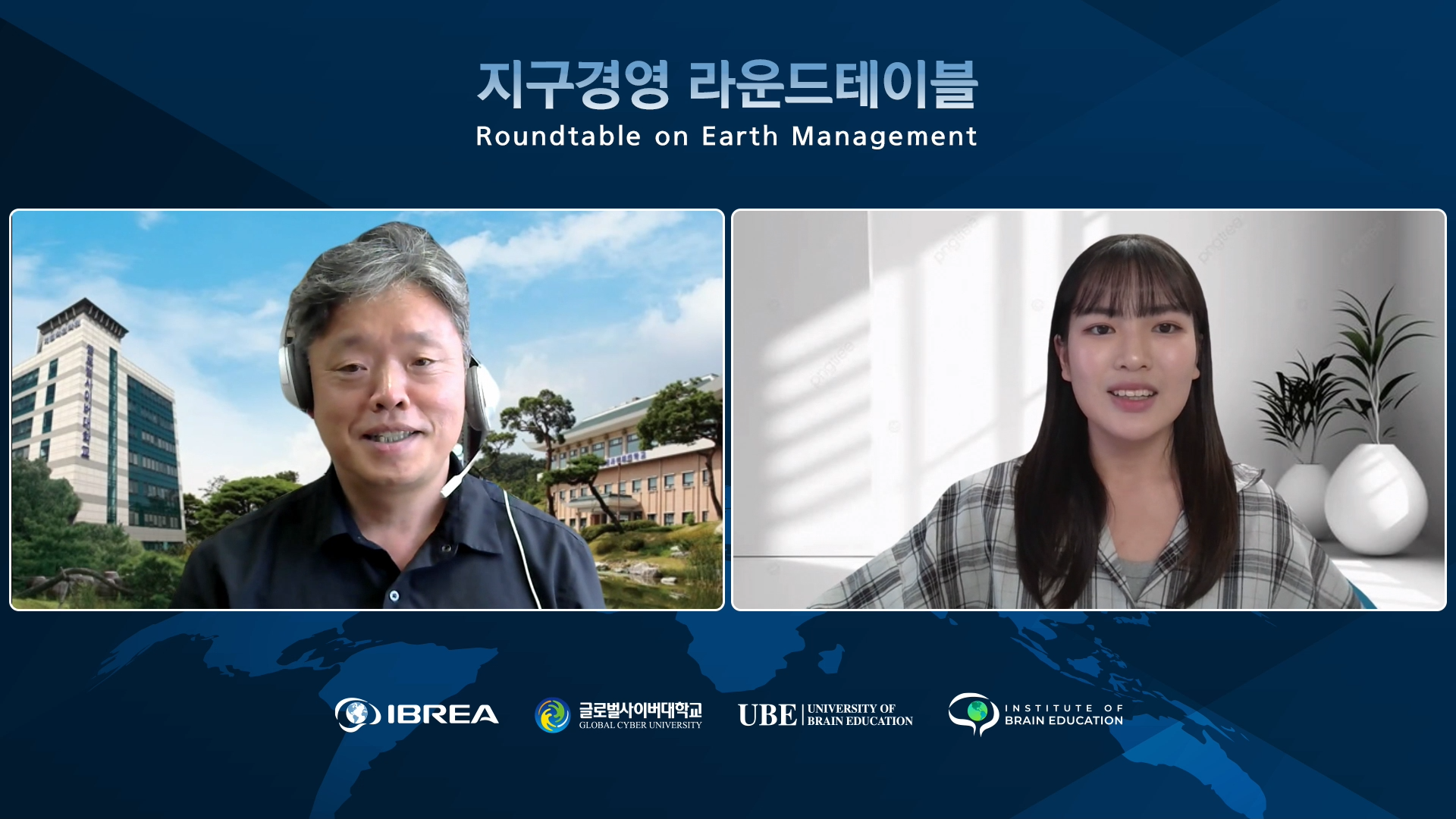
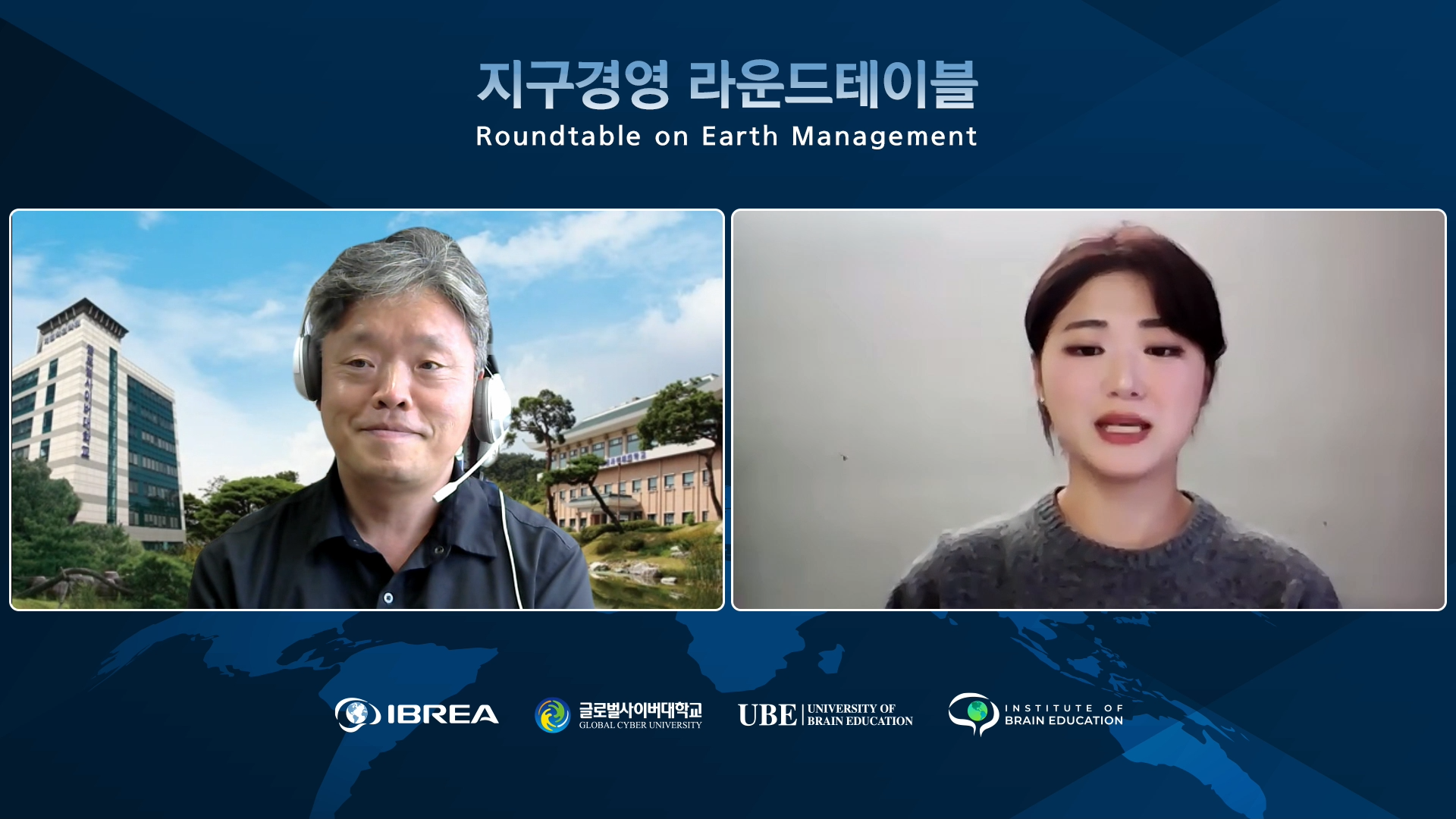
In the synthesis session, Steve Kim, Director at the Earth Citizens Organization (ECO), offered a provocative perspective: “Earth Management spans challenges from personal eating habits to socioeconomic inequality. The only entity currently equipped to integrate solutions across this breadth is artificial intelligence.” He projected that, once AI value alignment is solved, AI could become “the most powerful infrastructure for Earth Management,” and urged that mindful technology use be embedded in Earth Management education because “how users employ technology directly shapes AI’s trajectory.” Gap-Seong Lee, President of the Earth Citizens Organization in Korea, likewise stressed the necessity of an integrated approach through collective intelligence.
Moderating the forum, Ji-In Kim underscored that the Earth Management Roundtable is “a venue for practical discourse aimed not only at academic progress but at real-world change,” and affirmed that it will be a space where young people—the agents of planetary transformation in this era—actively participate alongside researchers and educators.
The forum underscored Earth Management’s evolution from a purely academic concept into a practice-oriented discipline offering concrete, real-world pathways to solutions. The forum video is available on IBREA’s YouTube channel.

